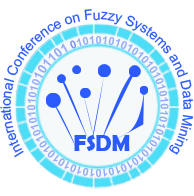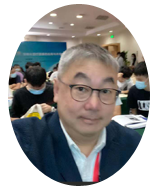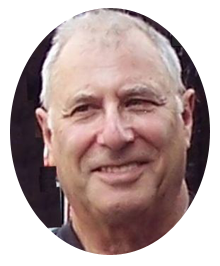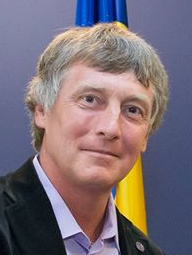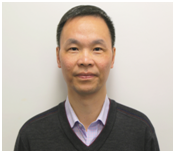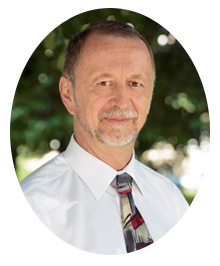Keynote Speakers
Dr. Simon James Fong, Associate Professor
Computer and Information Science Department, University of Macau, ChinaSpeech Title: Optimized Machine Learning for Critical Industrial Applications
Abstract: With the rapid development of industrial technology and intelligent information technology, the processing of big data by artificial intelligence (AI) enables industrial production to reach a higher level of automation. This is because AI has the ability of learning and identifying manufacturing defects using machine learning. It can control, monitor, and predict the state of the manufacturing equipment through the production data it has obtained, and it can achieve self-learning by establishing a neural network. On this basis, industrial production can rely on AI to achieve advanced intelligent requirements. As a branch of computer science and technology, the buzzword AI is actually rebranded from traditional machine learning techniques. But in industrial applications, especially for critical applications, the demand for precision and performance of AI is extremely high. Any mistake made by the AI means life and death.
Machine Learning (ML) has been around for decades, empowering many AI applications from computer vision to bioinformatics. Recently Deep Learning gained a remarkable popularity as a branch of ML, by its power to progressively extract higher-level features from the raw input through multiple "deep" layers. Convolutional Neural Network (CNN) is such a flagship model of DL that has unprecedented influential innovations in the field of computer vision and object recognition. While CNN has shown its power in many real-life case studies and successful deployment, recently much attentions of computer scientists are focused on how to build a best CNN for a given task with the best performance [1]. In this talk, I will describe holistic methodology called Optimized Learning (OL) which is designed to uplift the performance of DL, from augmenting the input data, to the CNN optimization and corrective output learning. The context of optimization in OL here is different from traditional optimization algorithms. ML usually acts indirectly in terms of enhancing the prediction performance. It is supposed that optimization in OL needs to be done at several levels and at different places of a ML model. This endeavor aims at leveraging a better ML/DL model for better outcomes, especially in critical applications where the best possible accuracy matters. Some prior works have already been done and applied in industries [2]. Some demos in real commercial AI projects will be shown, with a highlight of the importance of researching for enhanced ML/DL algorithms to better solve industrial problems.
References:
[1] Latest Journal Papers about artificial intelligence in industrial applications:
https://www.sciencedirect.com/journal/computers-and-electrical-engineering/special-issue/10H6P2R11TZ
[2] Examples of AI in actions as industrial solutions
https://www.opencv.ai/#solutions
Biography: Simon Fong graduated from La Trobe University, Australia, with a 1st Class Honours BEng. Computer Systems degree and a PhD. Computer Science degree in 1993 and 1998 respectively. Simon is now working as an Associate Professor at the Computer and Information Science Department of the University of Macau. He is a co-founder of the Data Analytics and Collaborative Computing Research Group in the Faculty of Science and Technology. Prior to his academic career, Simon took up various managerial and technical posts, such as systems engineer, IT consultant and e-commerce director in Australia and Asia. Dr. Fong has published over 500 international conference and peer-reviewed journal papers, mostly in the areas of data mining, data stream mining, big data analytics, meta-heuristics optimization algorithms, and their applications. He serves as editors at various special issues of SCIE-indexed journals. Simon is also an active researcher with leading positions such as Vice-chair of IEEE Computational Intelligence Society (CIS) Task Force on "Business Intelligence & Knowledge Management", and Vice-director of International Consortium for Optimization and Modelling in Science and Industry (iCOMSI).
Research Interests: data mining, data stream mining, big data analytics, meta-heuristics optimization algorithms, and their applications
Dr. Bernard P. Zeigler, Professor
Department of Electrical and Computer Engineering, University of Arizona, USASpeech Title: Linking Cognitive Behavior to Neural Circuits Via DEVS Models and Their Minimal Realizations
Abstract: Perception and generation of temporal event patterns, such as order of arrival of distinct events, coincidence of such events, and equality of event patterns are interesting cognitive behaviors that are simple enough to connect to potential biological realizations. Here we discuss Discrete Event System Specification (DEVS) models that exhibit such behaviors and can be developed, observed and tested in computational form. In this talk, we review the basics of the systems theory underlying DEVS as a modeling and simulation abstraction. Then we show how DEVS represents individual neural elements and their compositions to realize temporal event patterns by having the necessary states, processing signals, and memory features while coordinating themselves in space and time. Mathematical system-theory proofs of such models’ canonical minimal nature support the claim that their structures must be embedded in any plausible biological model of cognitive behavior. Thus, we argue that discrete event models of this nature constitute waypoints in the search for implementations involving elements such as neurons, neural micro-circuits, glial-astrocyte-neuron conglomerates, or as yet-unknown components. Implications of this methodology for intelligent cyber-physical system implementations will be discussed.
Biography: Dr. Bernard P. Zeigler is Professor Emeritus of Electrical and Computer Engineering at the University of Arizona and the Chief Scientist at RTSync Corp (rtsync.com). He received a B.Eng. Physics from McGill, M.S. from MIT, and Ph.D. from the University of Michigan (1968). Prof. Zeigler is best known for his theoretical work concerning modeling and simulation based on systems theory and the DEVS formalism which he invented in 1976. His book “Theory of Modeling and Simulation” has become a classic in the field. Recently, he published the third edition of the book updated with the help of two young researchers. His R&D work in academia and industry has received recognition from numerous funding and professional agencies. Zeigler is a Fellow of the Institute of Electrical and Electronics Engineers (IEEE) and The Society for Modeling and Simulation International (SCS). He is a member of the SCS Hall of Fame and received the Institute for Operations Research and Management Sciences (INFORMS) Simulation Society Lifetime Professional Achievement Award. His interests include Intelligent Systems, Knowledge Based System Design and Engineering, Cognitive behavior modeling and simulation, and cyber-physical systems Internet-of-Things realizations. His Wikipedia page is https://en.wikipedia.org/wiki/Bernard_P._Zeigler.
Dr. Dmitry Zaitsev, Professor
Department of Information Technology, Odessa State Environmental University, UkraineSpeech Title: High Performance and Unconventional Computing for Fuzzy Systems and Data Mining
Abstract: Fuzzy systems and big data mining require considerable computational resources. Traditionally high performance computing is involved represented by supercomputers and clusters. A classification of fuzzy systems and data mining tasks is provided with regard to required computing capacity, solution time limitations, concurrent algorithms and others. An overview of conventional high performance computing systems is presented, including recent most powerful computers, their architecture and programming technology for multicore distributed nodes supplied with graphical processing units. Since traditional architecture suffers from memory-processor bottlenecks, unconventional computing models are in demand such as Sleptsov nets, cellular automata, spiking neuron systems, neuron networks and others. Their implementation, especially in the form of dedicated hardware, promises hyper-performance at the expense of mass parallelism and fine granulation provided by computing memory.
Biography: Dmitry A. Zaitsev received the Eng. degree in Applied Mathematics from Donetsk Polytechnic Institute, Donetsk, Ukraine, in 1986, the Ph.D. degree in Automated Control from the Kiev Institute of Cybernetics, Kiev, Ukraine, in 1991, and the Dr.Sc. degree in Telecommunications from the Odessa National Academy of Telecommunications, Odessa, Ukraine, in 2006. He has been a Professor of Information Technology at Odessa State Environmental University, Ukraine, since 2019. He developed the analysis of infinite Petri nets with regular structure, the decomposition of Petri nets in clans, generalized neighborhood for cellular automata, and the method of synthesis of fuzzy logic function given by tables. He developed Opera-Topaz software for manufacture operative planning and control; a new stack of networking protocols E6 and its implementation within Linux kernel; Petri net analysis software Deborah, Adriana, and ParAd; models of TCP, BGP, IOTP protocols, Ethernet, IP, MPLS, PBB, and Bluetooth networks. His current research interests include Petri net theory and its application in networking, computing and automated manufacture. Recently he started working in the area of exascale computing applying his theory of clans to speed-up solving sparse linear systems on parallel and distributed architectures. He was a co-director of joint projects with China and Austria. Recently he has been a visiting professor to Technical University of Dortmund, Germany on DAAD scholarship, to University of Tennessee Knoxville, USA on Fulbright scholarship and to Eindhoven University of Technology, Netherlands. He published a monograph, 3 book chapters and more than a hundred of papers including issues listed in JCR. He is a senior member of ACM and IEEE. Additional information including papers, software, models, video-lectures in put on personal website via http://daze.ho.ua
Dr. Mohammed Chadli, Professor
University of Paris-Saclay, IBISC Lab., FranceSpeech Title: Multi-Objective Fault Detection Filter Synthesis for a Class of Nonlinear Systems: Some Results and Perspectives
Abstract: This presentation proposes some methods of fault detection filter synthesis for a class of nonlinear systems. Observer-based LMI synthesis methods for T-S systems subjected to unknown inputs are presented. Subsequently, multi-objective synthesis problem is discussed in FDI framework. When we are interested in these problems in finite frequency domains (FFD), i.e. in frequency ranges of the fault and unknown perturbations known in advance and belonging to finite frequency bands, these classic techniques (in infinite frequency domains) become quite restrictive. Indeed, the problem of multiobjective synthesis in the finite frequency domain is addressed. In a fault diagnosis context, the generated residue must be as sensitive as possible to faults and as robust as possible against unknown perturbations by means of two finite frequency performance indices such as the H_ and H∞ indexes. Based on the Kalman-Yakubovich-Popov generalized lemma (GKYP) and the Lyapunov method, sufficient design conditions have been proposed in recent years. Despite these recent developments, and the use of polyquadratic Lyapunov functions, the multiobjective LMI synthesis conditions are only sufficient. Still open perspectives will be discussed.
Biography: Mohammed Chadli (Senior Member’99, IEEE) received the MScEng (DEA) from the Engineering School INSA-Lyon (1999), the PhD thesis in Automatic Control from the University of Lorraine (UL), CRAN-Nancy France in 2002 and his habilitation in 2011 at the University of Picardie Jules Verne (UPJV) Amiens, France. He was Lecturer and Assistant Professor at the UL “Institut National Polytechnique de Lorraine” (2000-2004). Since 2004, he was Associate Professor at the UPJV and currently Full Professor at the University Paris-Saclay, Univ Evry, IBISC Lab., France. He was a visiting professorship at the TUO-Ostrava (Czech Rep.), UiA (Norway), SMU-Shanghai (2014-2017), NUAA-Nanjing (2018, 2019) and the University of Naples Federico II (Italy).
Dr Chadli’s research interests include fuzzy/LPV and switched systems, singular systems, robust control, fault detection and isolation (FDI), fault tolerant control (FTC) via LMI, SOS and Lyapunov methods. On the application side he is mainly interested in automotive control and renewable energy. He is co-author of books and book chapters (Wiley, Springer, Hermes), and numerous articles published in international journals and conferences.
Dr. Chadli is a senior member of IEEE, an Editor/Associate Editor/Editorial Board Member of several international journals, including the IEEE Transactions on Fuzzy Systems, Automatica, the IET Control Theory and Applications, the Franklin Institute Journal, Asian Journal of Control … He is also Moderator for IEEE TechRxiv and was a Guest Editor for Special Issues in international journals.
Dr. Huiyu Zhou, Professor
School of Informatics, University of Leicester, UKSpeech Title: Artificial Intelligence in Health Care
Abstract: Artificial intelligence has significantly influenced the health sector for years by delivering novel assistive technologies from robotic surgery and hospital management systems to versatile biosensors that enable remote diagnosis and efficient treatment. While the COVID-19 pandemic is devastating, the uses of AI in the healthcare sector are dramatically increasing and it is a critical time to look at its impact and possible limitations in different aspects. In this talk, I will introduce the concept of artificial intelligence (AI) and its uses. Then, I discuss the current public opinion on AI and its hype. I also present the regulation of AI in the community, followed by the discussion on challenges in the field. Finally, I predict the future work in AI using a few examples.
Keywords: Artificial intelligence; health care; hype; regulation; challenges.
Biography: Dr. Huiyu Zhou received a Bachelor of Engineering degree in Radio Technology from Huazhong University of Science and Technology of China, and a Master of Science degree in Biomedical Engineering from University of Dundee of United Kingdom, respectively. He was awarded a Doctor of Philosophy degree in Computer Vision from Heriot-Watt University, Edinburgh, United Kingdom. Dr. Zhou currently is a full Professor at School of Informatics, University of Leicester, United Kingdom. He has published over 300 peer-reviewed papers in the field. He was the recipient of "CVIU 2012 Most Cited Paper Award", “MIUA 2020 Best Paper Award”, “ICPRAM 2016 Best Paper Award” and was nominated for “ICPRAM 2017 Best Student Paper Award” and "MBEC 2006 Nightingale Prize". Dr. Zhou serves as the Editor-in-Chief of Recent Advances in Electrical & Electronic Engineering and Associate Editor of "IEEE Transaction on Human-Machine Systems", “IEEE Journal of Biomedical and Health Informatics”, “Pattern Recognition”, “PeerJ Computer Science” and “IEEE Access”, and Area Chair of IJCAI and BMVC. He is one of the Technical Committee of “IEEE Cognitive and Development Systems”, “Information Assurance & Intelligent Multimedia-Mobile Communication in IEEE SMC Society”, “Robotics Task Force” and “Biometrics Task Force” of the Intelligent Systems Applications Technical Committee, IEEE Computational Intelligence Society. He has given over 100 invited talks at international conferences, industry and universities, and has served as a chair for 70 international conferences and workshops. His research work has been or is being supported by UK EPSRC, MRC, EU, Royal Society, Leverhulme Trust, Puffin Trust, Alzheimer’s Research UK, Invest NI and industry. His research fields include machine learning, computer vision and signal processing and his research interest has focused on the development of AI/machine learning algorithms that enable a system to better understand and interpret images/signals. More details about Dr. Zhou, please refer to https://www2.le.ac.uk/departments/informatics/people/huiyu-zhou
Dr. Vilem Novak, Professor
University of Ostrava, Institute for Research and Applications of Fuzzy Modeling, Ostrava, Czech RepublicSpeech Title: Non-statistical methods for analysis, forecasting and mining time series
Abstract: In this lecture, we will overview results obtained in our institute over several years in the analysis, forecasting, and mining of information from time series using methods that predominantly have non-statistical character. We argue that our methods can be pretty successful in time series processing. In addition to that, they can also provide information that can hardly be obtained using statistical methods. Let us emphasize, however, that our goal is not to beat statistical methods but rather to extend the power of time series processing methods and benefit from the mutual synergy.
We will present special techniques of fuzzy modeling suitable for applications in time series processing, namely the Fuzzy Transform (F-transform) and selected methods of Fuzzy Natural Logic (FNL). The F-transform is applied especially to estimation of the trend or trend-cycle of time series, and also to estimation of the slope of time series over an imprecisely specified area. These results are then applied in the methods of FNL using which we are able to forecast the time series, provide explanation of the forecast in natural language and also provide comments to the slope of time series and detect possible structural breaks in it. Other applications of our methods include: reduction of the dimensionality, detection of ``bull and bear'' phases of financial time series, measures of similarity between time series, automatic summarization of knowledge about time series, detection of perceptional important points, and a few other ones.
Biography: Prof. Vilem Novak, Ph.D., DSc. is founder and former director of the Institute for Research and Applications of Fuzzy Modeling of the University of Ostrava, Czech Republic. The institute (established in 1996) is one of the world-renowned scientific workplaces that significantly contributed to the theory and applications of fuzzy modeling.
V. Novak obtained a PhD in mathematical logic at Charles University, Prague in 1988; DSc. (Doctor of Sciences) in computer science in the Polish Academy of Sciences, Warsaw in 1995; full professor at Masaryk University, Brno in 2001. His research activities include mathematical fuzzy logic, approximate reasoning, mathematical modeling of linguistic semantics, fuzzy control, analysis and forecasting of time series, and various kinds of fuzzy modeling applications. He belongs among pioneers of the fuzzy set theory.
He was general chair of the VIIth IFSA' 97 World Congress, Prague and of the international conferences EUSFLAT 2007, Ostrava and EUSFLAT 2019, Prague. He is a member of editorial boards of several scientific journals. He is often invited to give plenary talks at international conferences and to give university lectures all over the world. He is the author or co-author of 5 scientific monographs, two edited monographs, and over 300 scientific papers with over 7000 citations. He was awarded in the International Conference FLINS 2010 in China and obtained the title "IFSA fellow" in 2017 for his scientific achievements. He is currently the vice-president of IFSA.
